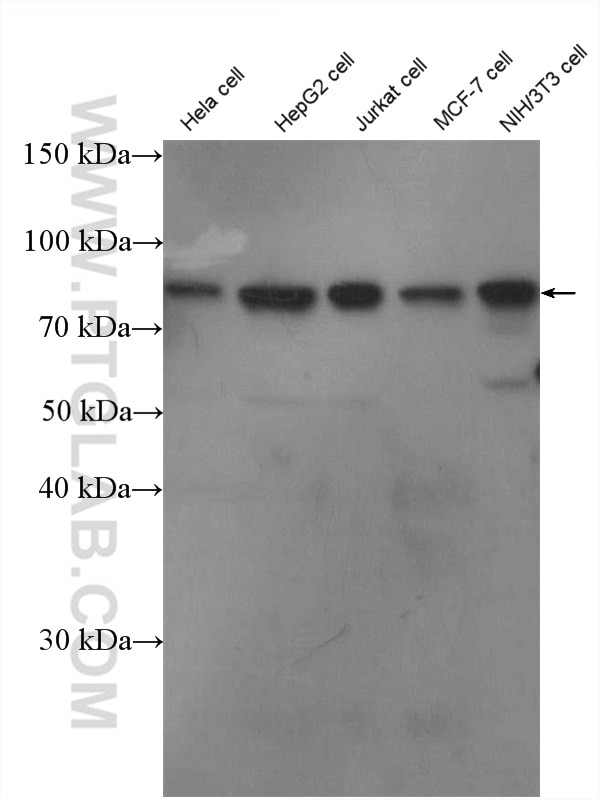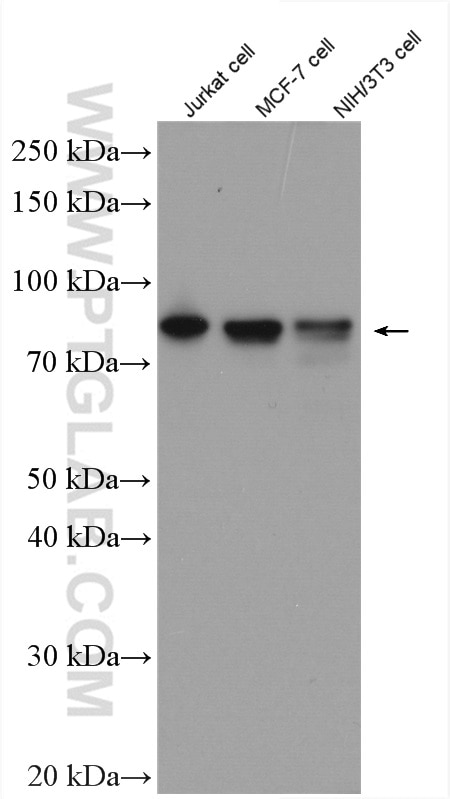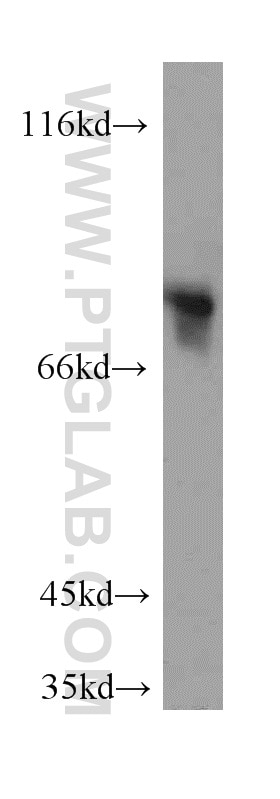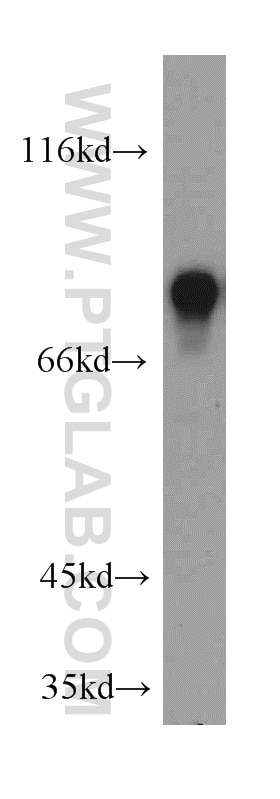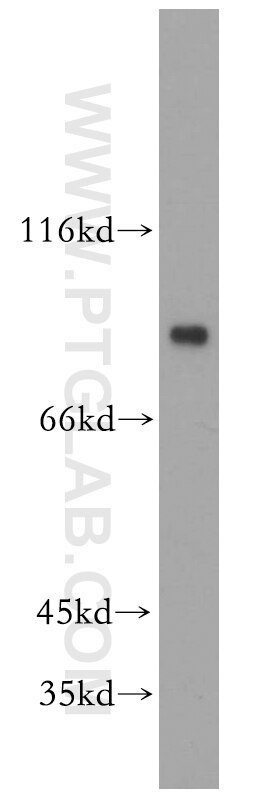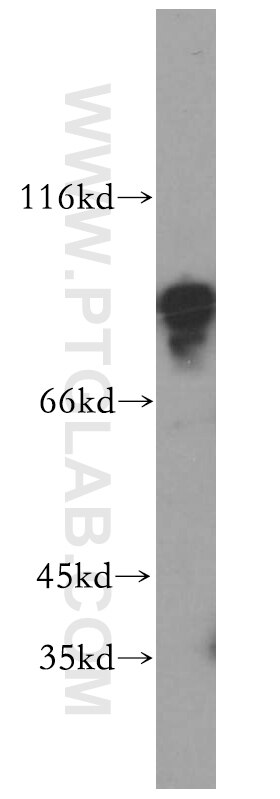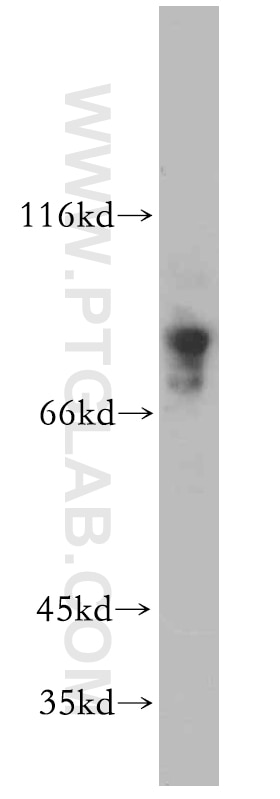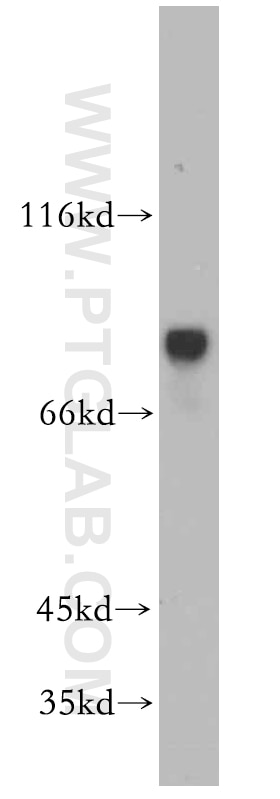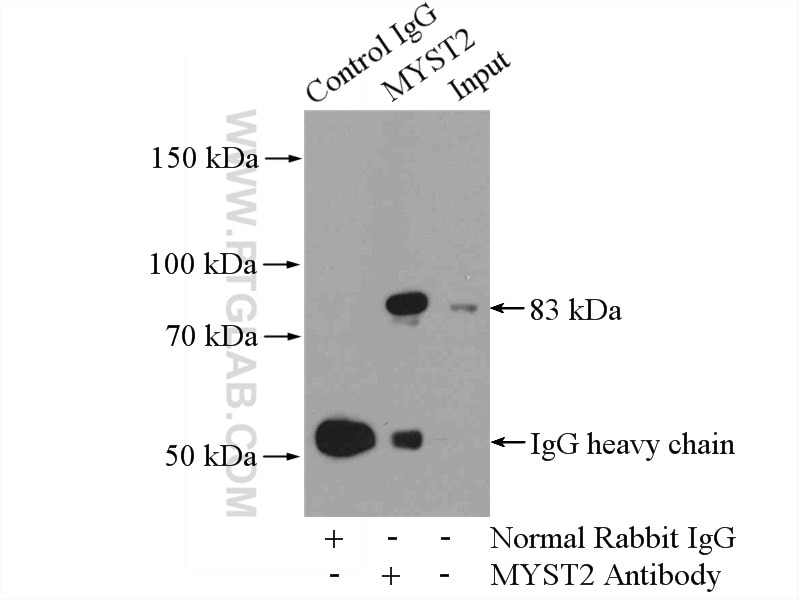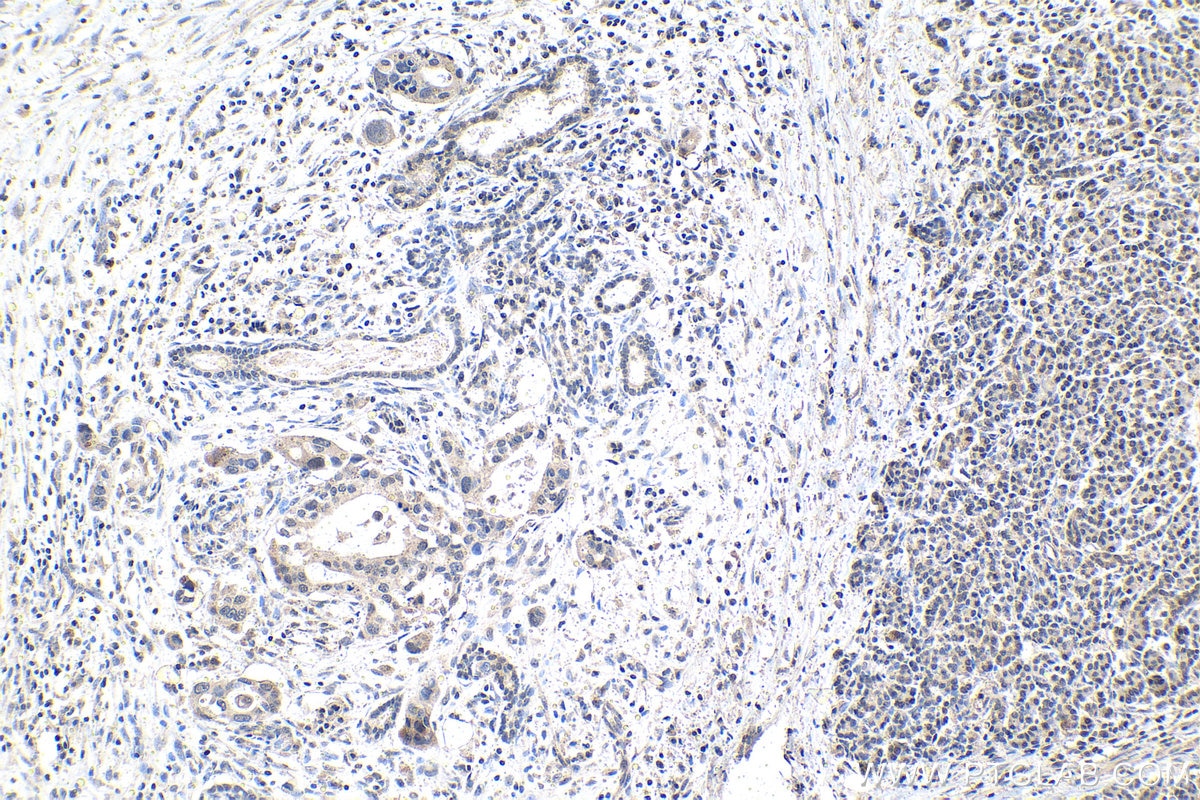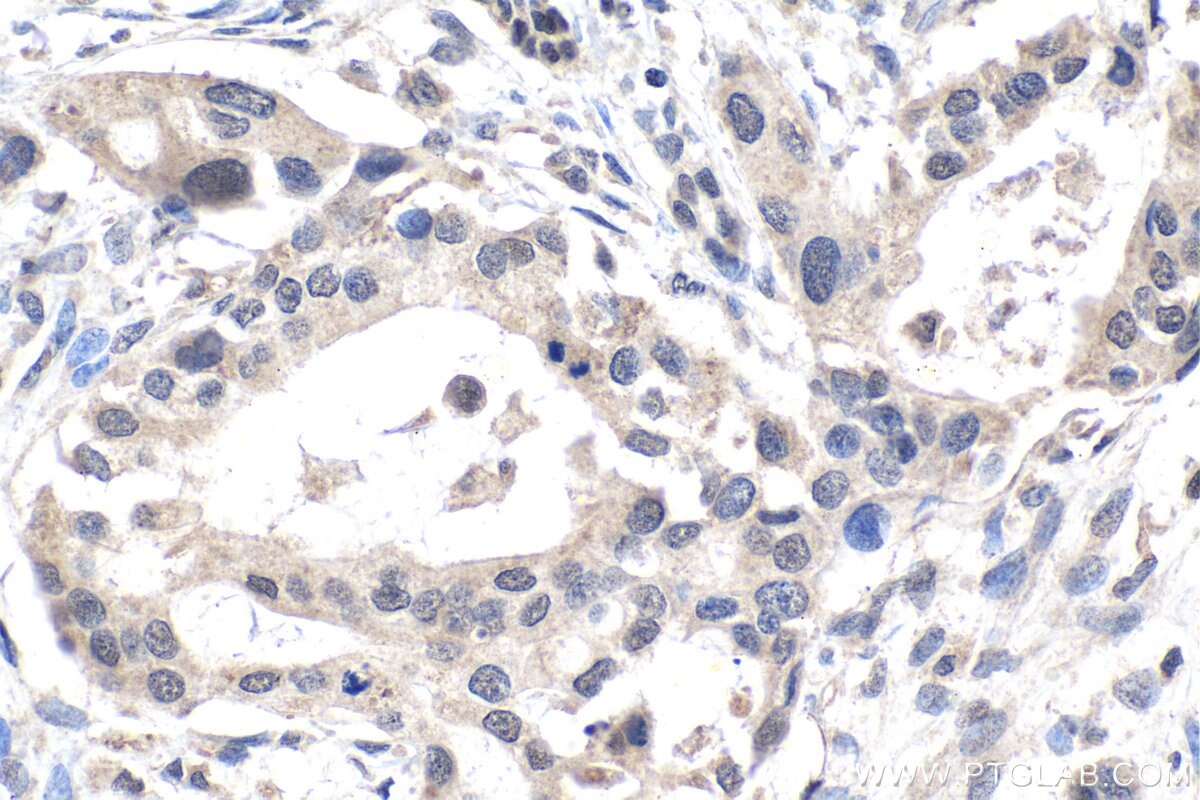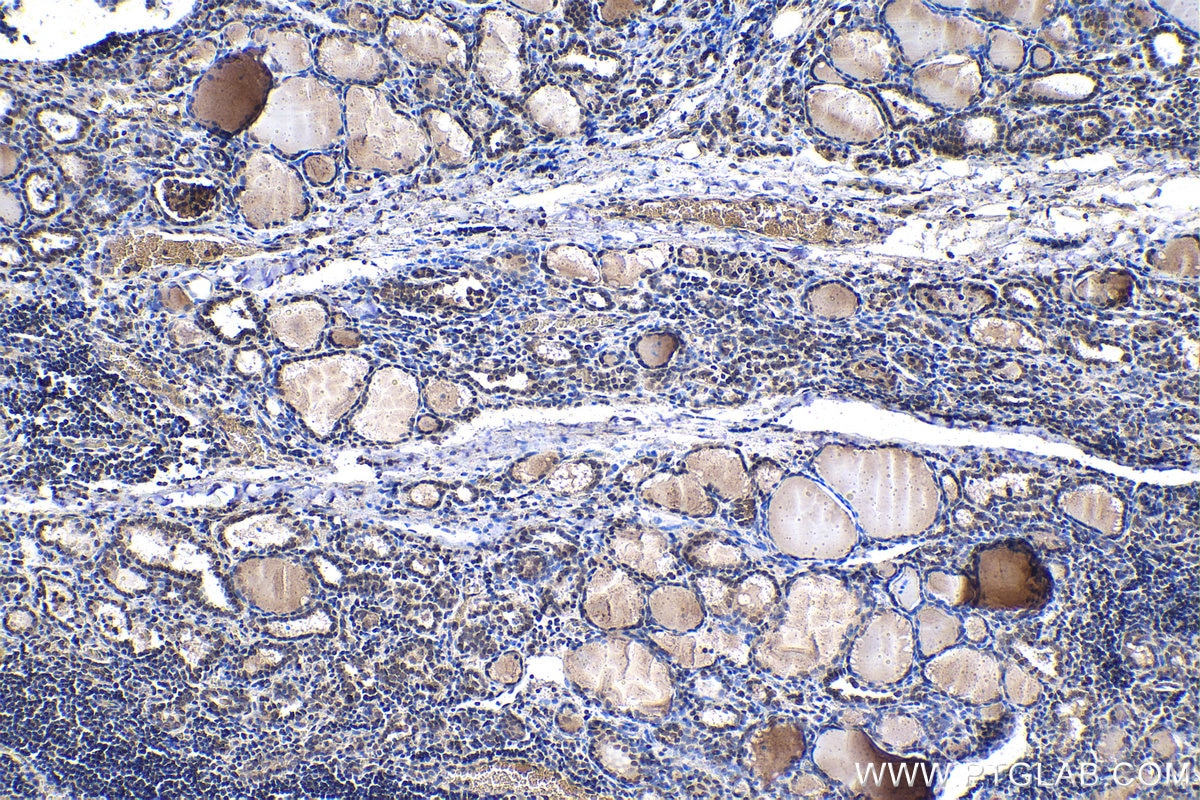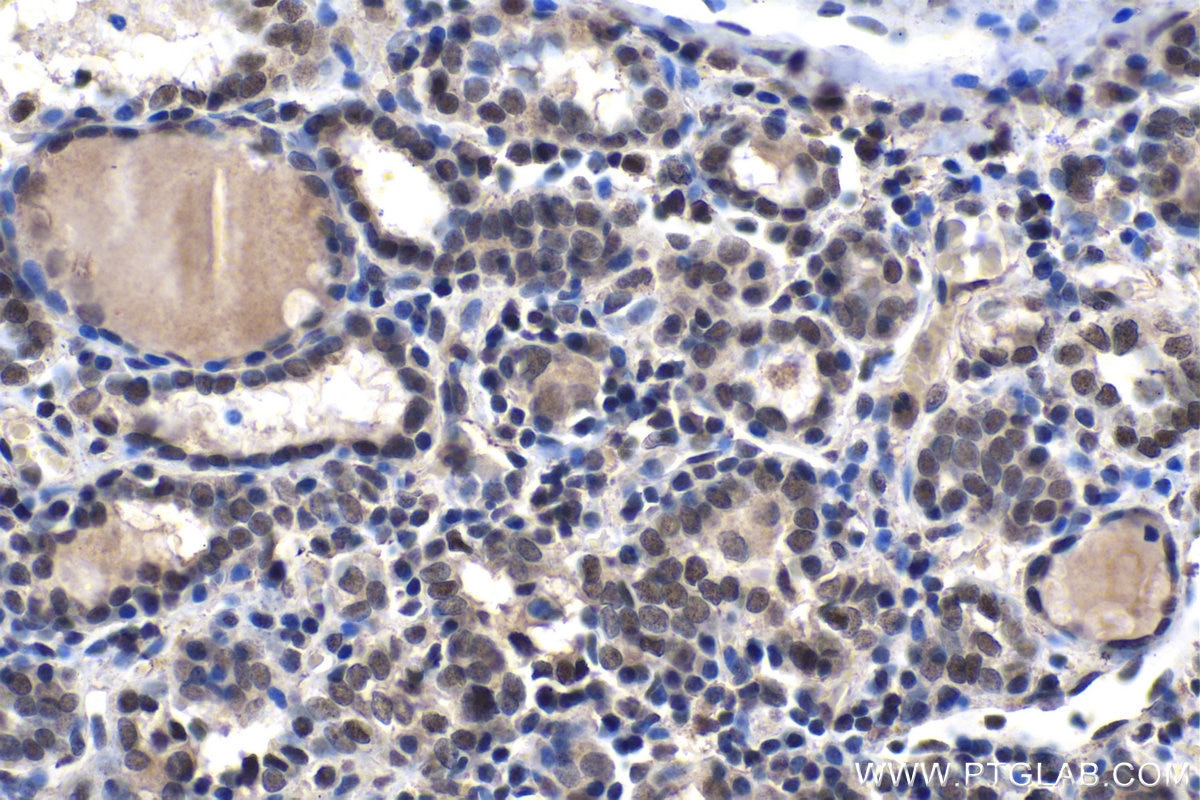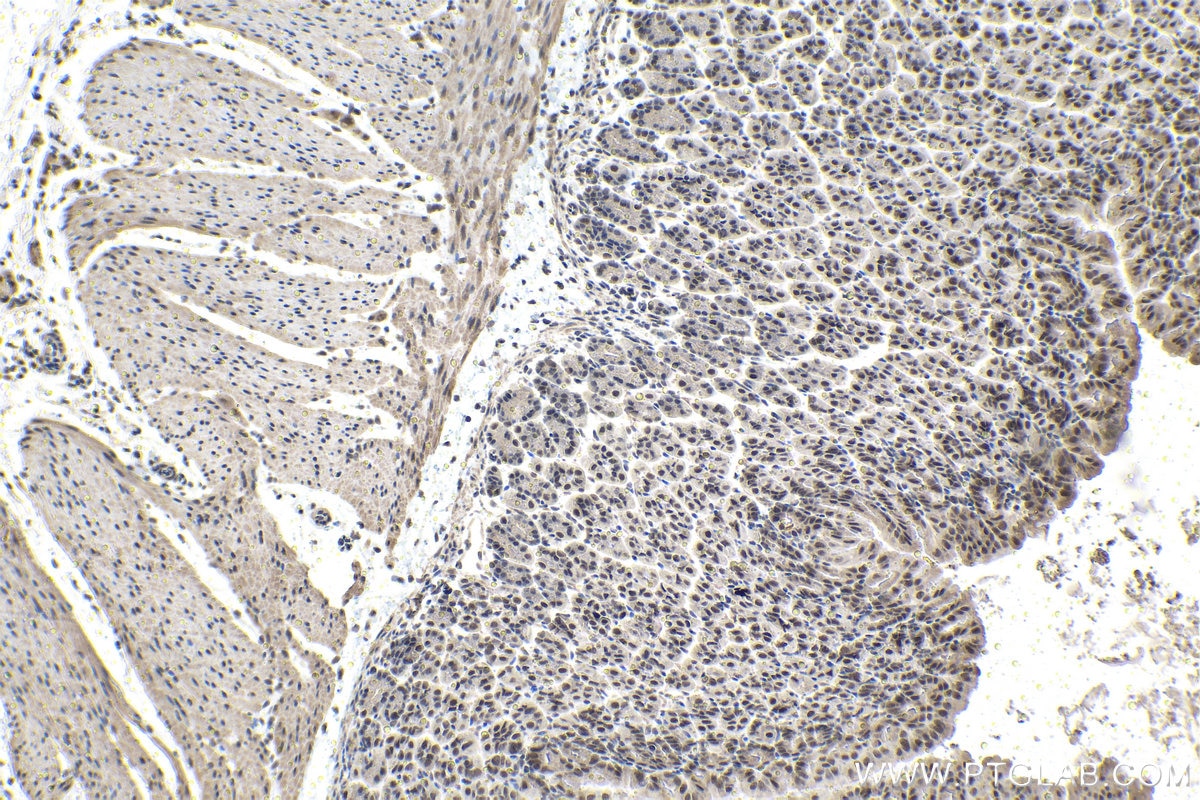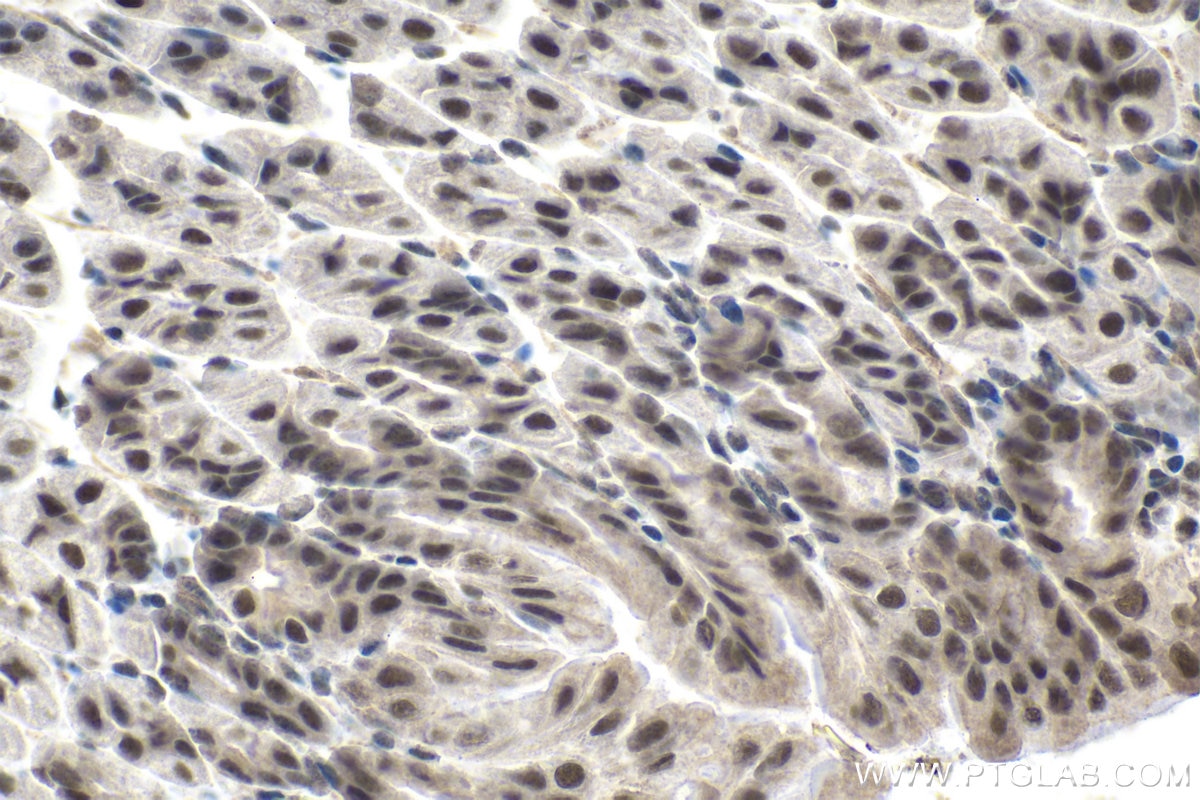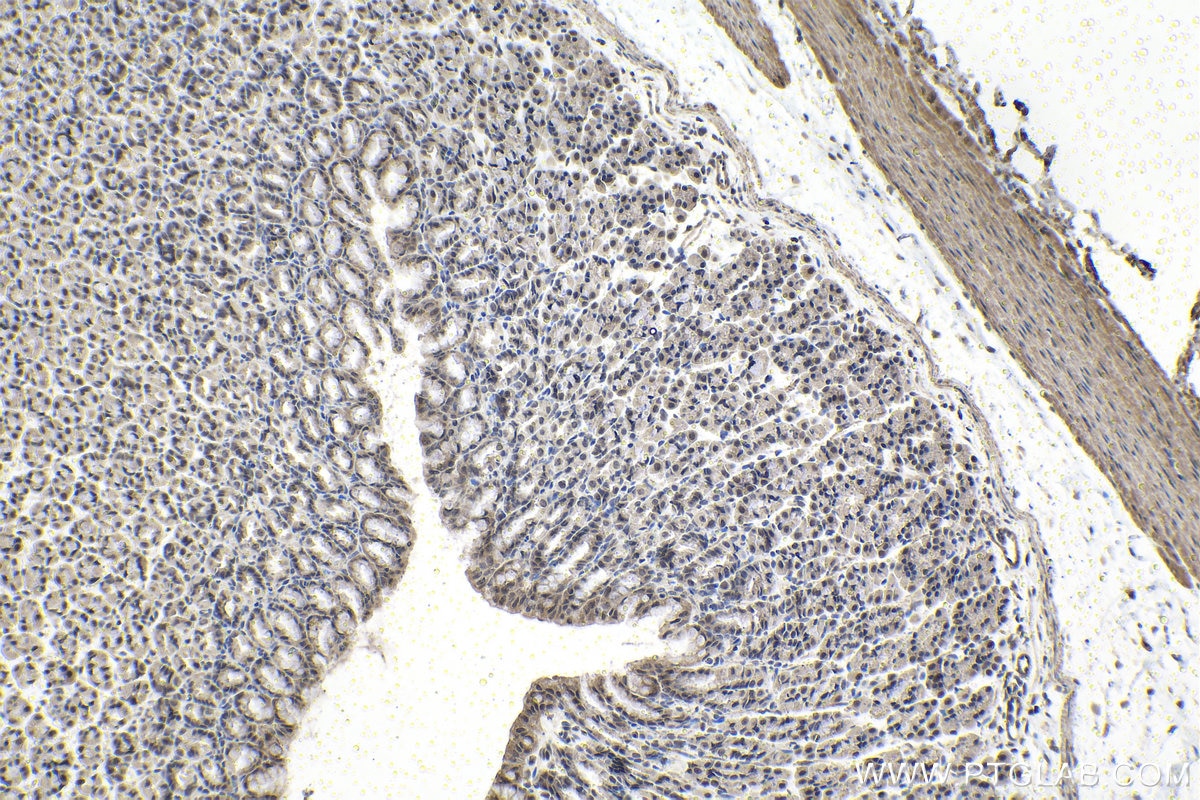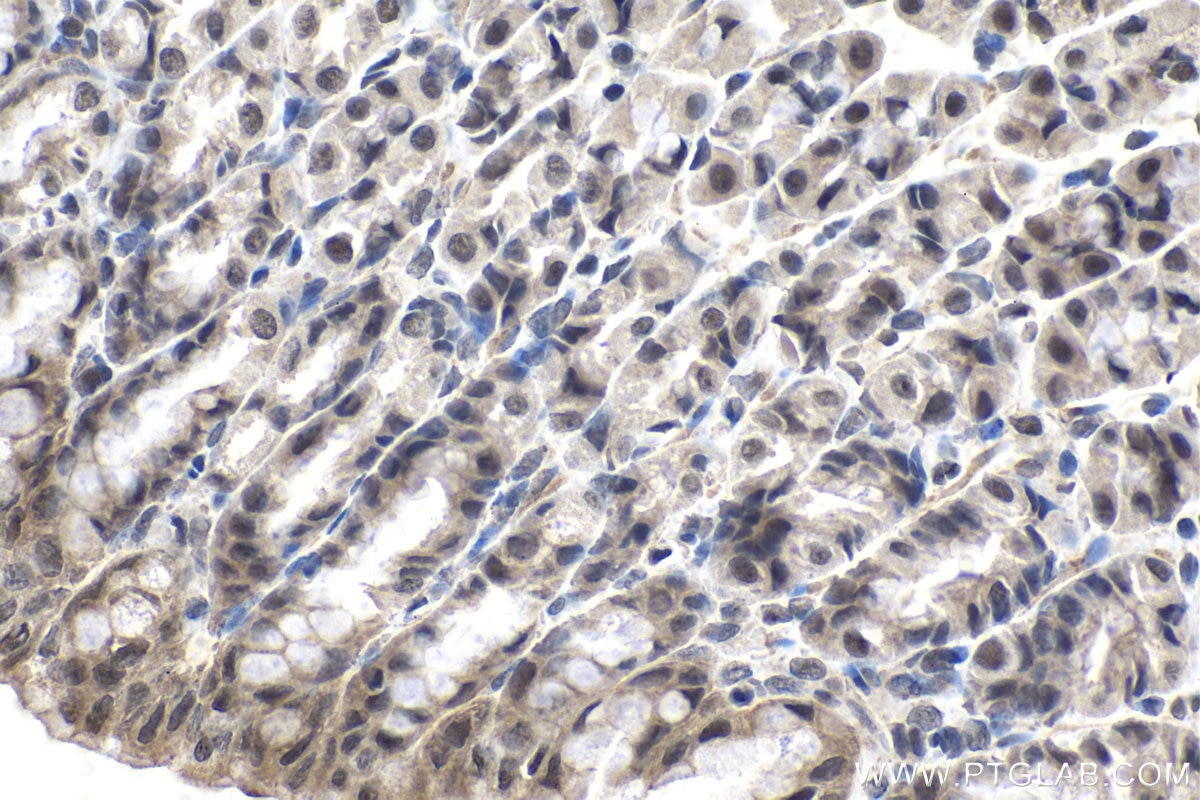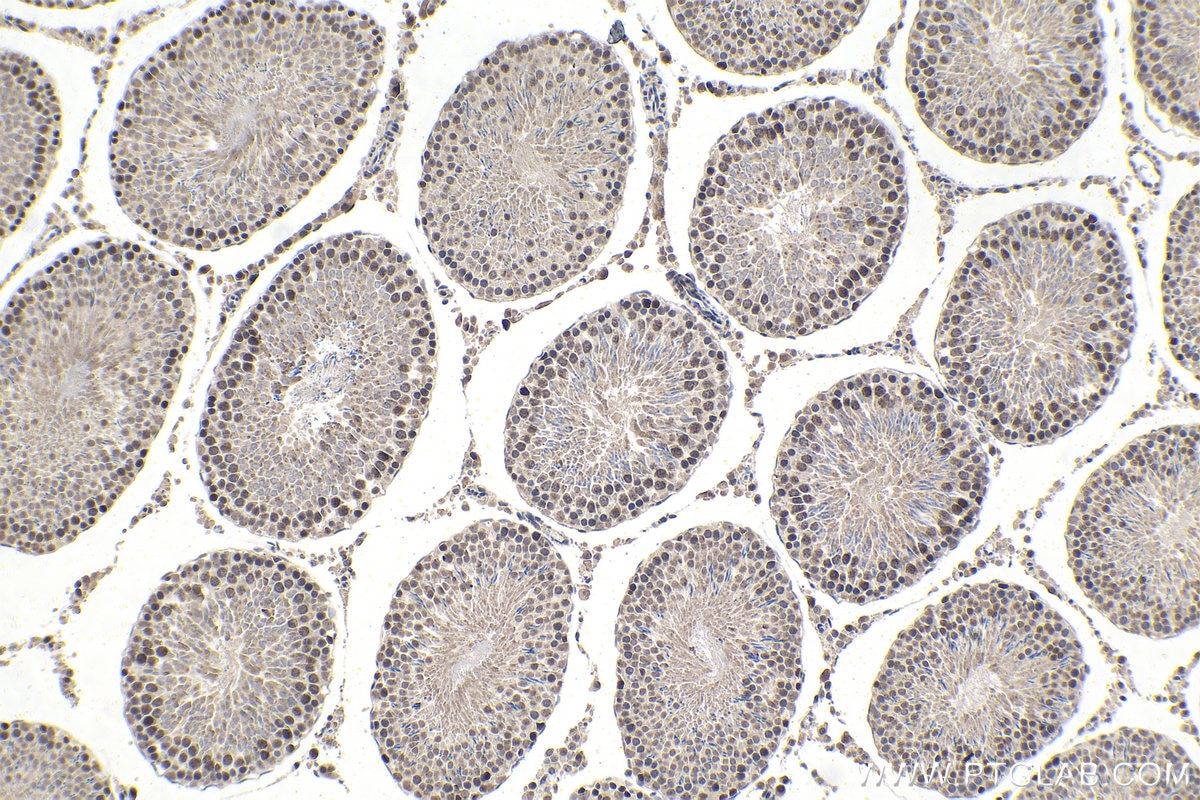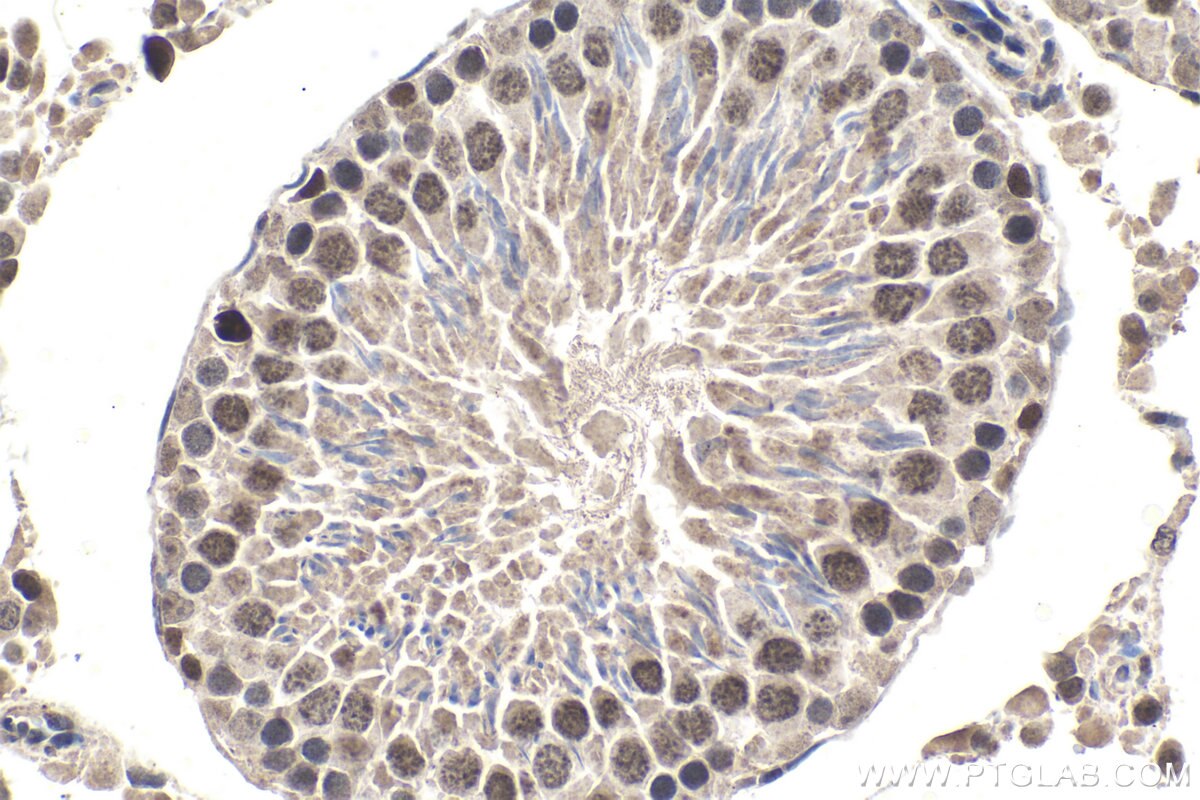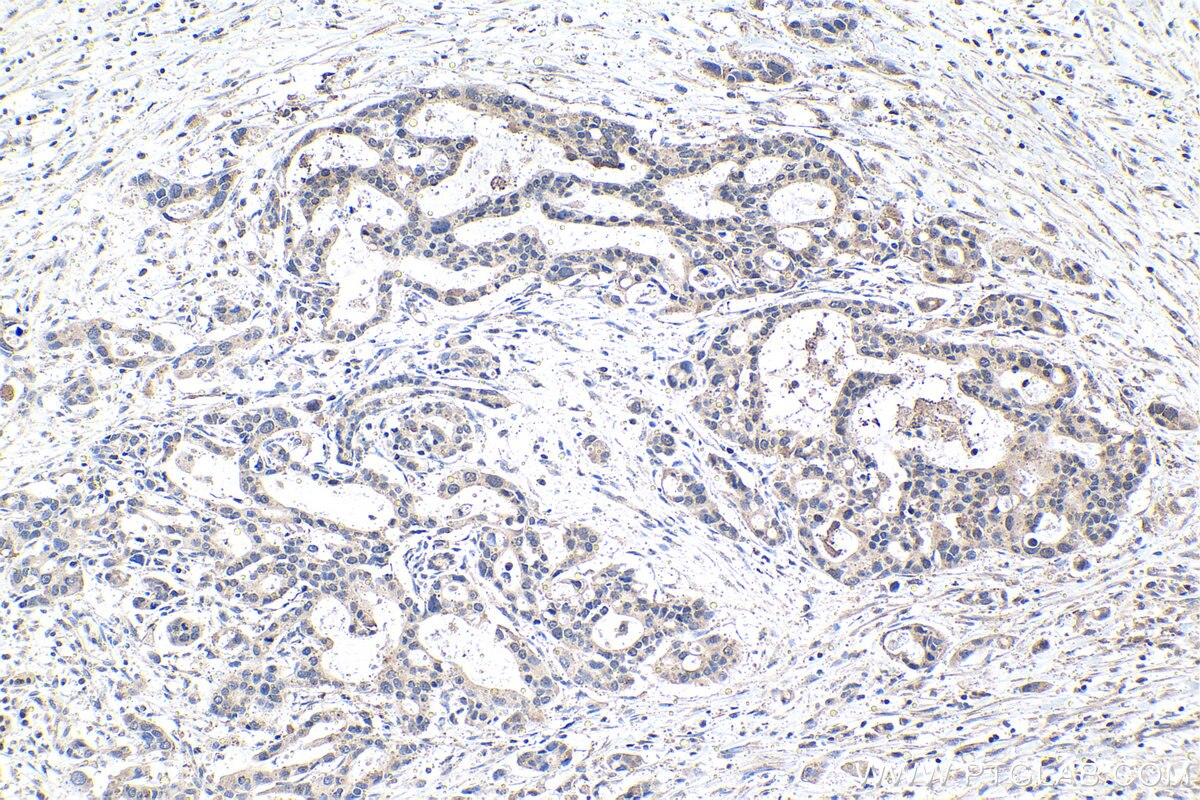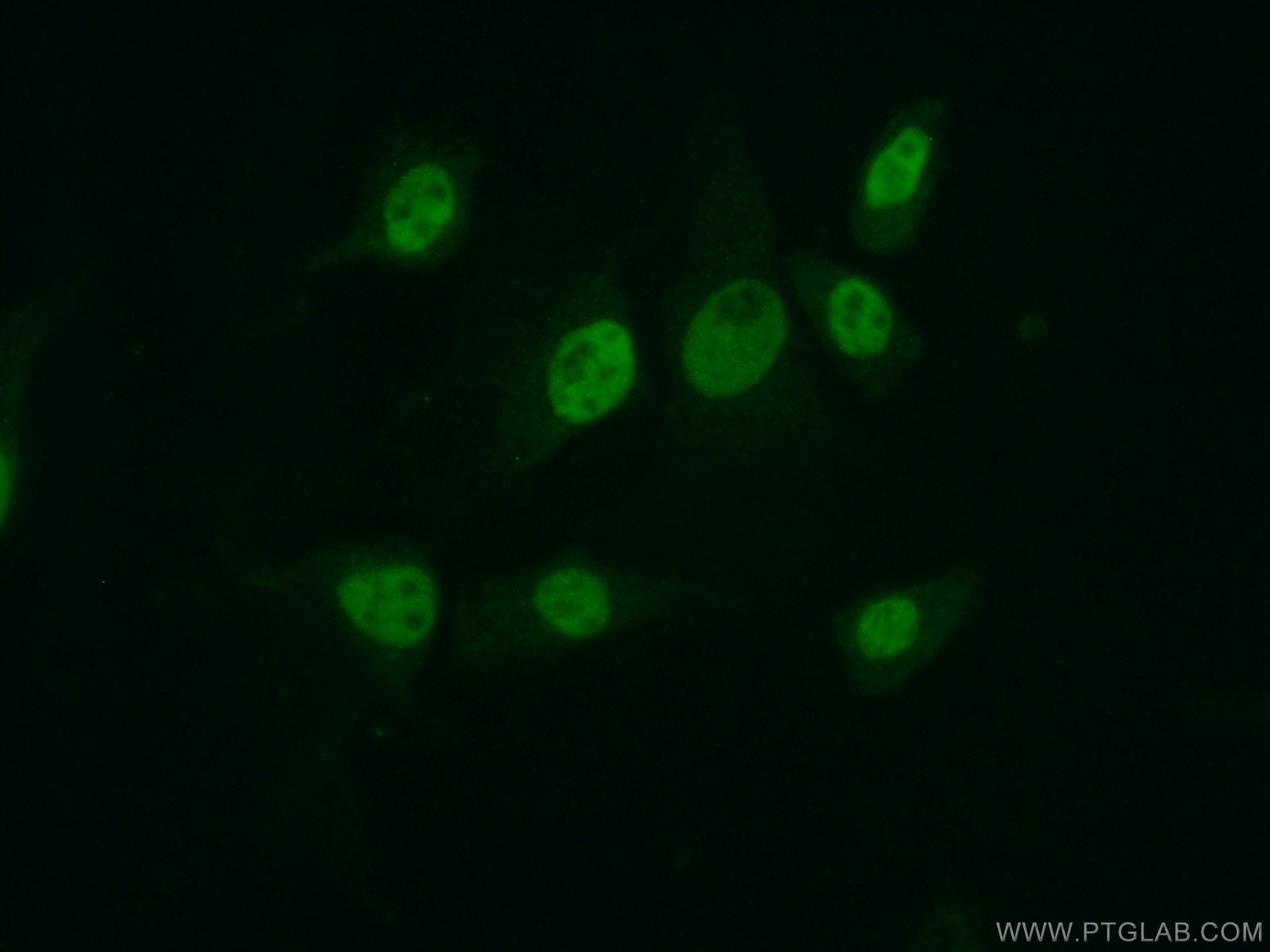Validation Data Gallery
Tested Applications
| Positive WB detected in | HeLa cells, human testis tissue, Jurkat cells, NIH/3T3 cells, MCF-7 cells, PC-3 cells |
| Positive IP detected in | HeLa cells |
| Positive IHC detected in | human pancreas cancer tissue, human thyroid cancer tissue, mouse stomach tissue, rat stomach tissue, rat testis tissue Note: suggested antigen retrieval with TE buffer pH 9.0; (*) Alternatively, antigen retrieval may be performed with citrate buffer pH 6.0 |
| Positive IF/ICC detected in | NIH/3T3 cells |
Recommended dilution
| Application | Dilution |
|---|---|
| Western Blot (WB) | WB : 1:1000-1:4000 |
| Immunoprecipitation (IP) | IP : 0.5-4.0 ug for 1.0-3.0 mg of total protein lysate |
| Immunohistochemistry (IHC) | IHC : 1:250-1:1000 |
| Immunofluorescence (IF)/ICC | IF/ICC : 1:50-1:500 |
| It is recommended that this reagent should be titrated in each testing system to obtain optimal results. | |
| Sample-dependent, Check data in validation data gallery. | |
Published Applications
| KD/KO | See 2 publications below |
| WB | See 20 publications below |
| IHC | See 3 publications below |
| IF | See 4 publications below |
| IP | See 3 publications below |
| CoIP | See 1 publications below |
| ChIP | See 1 publications below |
Product Information
13751-1-AP targets MYST2 in WB, IHC, IF/ICC, IP, CoIP, ChIP, ELISA applications and shows reactivity with human, mouse, rat samples.
| Tested Reactivity | human, mouse, rat |
| Cited Reactivity | human, mouse, rat |
| Host / Isotype | Rabbit / IgG |
| Class | Polyclonal |
| Type | Antibody |
| Immunogen |
CatNo: Ag4693 Product name: Recombinant human MYST2 protein Source: e coli.-derived, PGEX-4T Tag: GST Domain: 1-370 aa of BC032640 Sequence: MPRRKRNAGSSSDGTEDSDFSTDLEHTDSSESDGTSRRSARVTRSSARLSQSSQDSSPVRNLQSFGTEEPAYSTRRVTRSQQQPTPVTPKKYPLRQTRSSGSETEQVVDFSDRETKNTADHDESPPRTPTGNAPSSESDIDISSPNVSHDESIAKDMSLKDSGSDLSHRPKRRRFHESYNFNMKCPTPGCNSLGHLTGKHERHFSISGCPLYHNLSADECKVRAQSRDKQIEERMLSHRQDDNNRHATRHQAPTERQLRYKEKVAELRKKRNSGLSKEQKEKYMEHRQTYGNTREPLLENLTSEYDLDLFRRAQARASEDLEKLRLQGQITEGSNMIKTIAFGRYELDTWYHSPYPEEYARLGRLYMCEF 相同性解析による交差性が予測される生物種 |
| Full Name | MYST histone acetyltransferase 2 |
| Calculated molecular weight | 611 aa, 71 kDa |
| Observed molecular weight | 71 kDa |
| GenBank accession number | BC032640 |
| Gene Symbol | MYST2 |
| Gene ID (NCBI) | 11143 |
| RRID | AB_2266703 |
| Conjugate | Unconjugated |
| Form | |
| Form | Liquid |
| Purification Method | Antigen affinity purification |
| UNIPROT ID | O95251 |
| Storage Buffer | PBS with 0.02% sodium azide and 50% glycerol{{ptg:BufferTemp}}7.3 |
| Storage Conditions | Store at -20°C. Stable for one year after shipment. Aliquoting is unnecessary for -20oC storage. |
Background Information
MYST2, also named as HBO1, HBOa MOZ, YBF2/SAS3, SAS2 and TIP60 protein 2, belongs to the MYST (SAS/MOZ) family. It specifically represses AR mediated transcription. MYST2 is a candidate oncogene. It enhances the anchorage-independent growth of breast cancer cells.(PMID:19372580) MYST2 is a histone acetyltransferase (HAT) which could exert oncogenic function in breast cancer. It is an important downstream molecule of ERa, and ERK1/2 signaling pathway may involved in the expression of HBO1 increased by E2.
Protocols
| Product Specific Protocols | |
|---|---|
| IF protocol for MYST2 antibody 13751-1-AP | Download protocol |
| IHC protocol for MYST2 antibody 13751-1-AP | Download protocol |
| IP protocol for MYST2 antibody 13751-1-AP | Download protocol |
| WB protocol for MYST2 antibody 13751-1-AP | Download protocol |
| Standard Protocols | |
|---|---|
| Click here to view our Standard Protocols |
Publications
| Species | Application | Title |
|---|---|---|
Cancer Cell Transcriptional Regulation of the Warburg Effect in Cancer by SIX1.
| ||
Adv Sci (Weinh) Transcriptional Regulation of De Novo Lipogenesis by SIX1 in Liver Cancer Cells | ||
Autophagy KAT7-mediated CANX (calnexin) crotonylation regulates leucine-stimulated MTORC1 activity. | ||
Cancer Res Hbo1 is a cyclin E/CDK2 substrate that enriches breast cancer stem-like cells. | ||
Mol Cell Proteomics Regulation of acetylation restores proteolytic function of diseased myocardium in mouse and human. | ||
Mol Cell Proteomics Acetylproteomic analysis reveals functional implications of lysine acetylation in human spermatozoa (sperm). |

